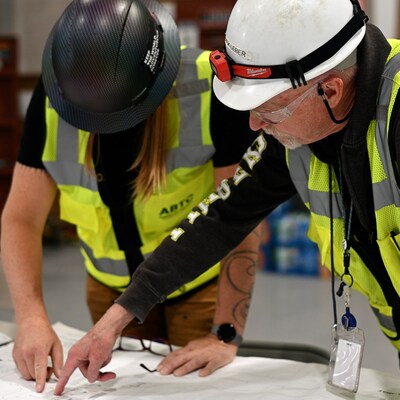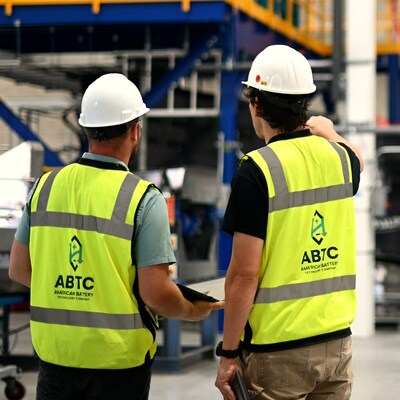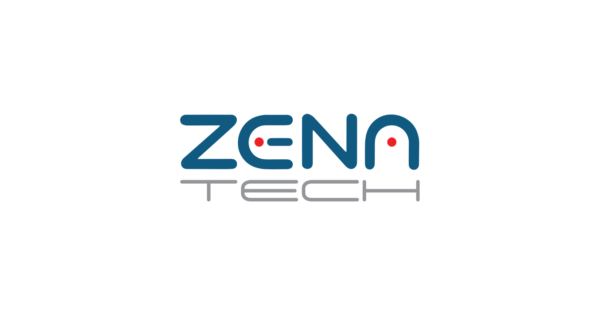Achieved steps to de-risk implementation of its battery recycling technologies at commercial scale by completing all diligence and receiving final contracts for supporting US DOE grants
Reno, Nev., Oct. 25, 2023 /PRNewswire/ — American Battery Technology Company (ABTC) (NASDAQ: ABAT), an integrated critical battery materials company that is commercializing its technologies for both primary battery minerals manufacturing and secondary minerals battery recycling, continues to advance operations and the implementation of its internally-developed lithium-ion battery recycling technologies at its commercial-scale facility located in Nevada, which has now been designated as a regional “innovation and technology hub” by the Biden Administration.
The ABTC commercial lithium-ion battery recycling facility has the capacity to process over 20,000 metric tonnes per year of battery feedstock materials when fully ramped, and several strategic partnerships have been announced recently for the sourcing of feed material and the offtake of recycled products, such as with BASF, Nanotech, and FedEx. The initial phase of the facility is already operational, and processes battery feedstock materials into recycled products including copper, aluminum, steel, a lithium intermediate, and a black mass intermediate material that are sold through an already executed marketing agreement with the global metals trader TechMet-Mercuria. With the second phase of this integrated recycling facility, the lithium intermediate will be further refined into a battery grade lithium hydroxide product, and the black mass intermediate material will be further refined into battery grade nickel, cobalt, manganese, and lithium hydroxide products.
“By design, the combination of building an in-house team of industry experts and developing in-house technologies is driving construction and operations progress at our commercial-scale lithium-ion battery recycling facility,” stated ABTC CEO Ryan Melsert. “Due to the skills and dedication of our technical program management, engineering, construction, and operations teams, the initial phase of our commercial battery recycling facility was brought online under the allotted budget and in an accelerated timeframe.”
These battery recycling technologies were developed in-house by the ABTC R&D, engineering, and technical projects team members, many of whom were previously members of the founding Tesla Gigafactory design and engineering teams. These ABTC team members have significant experience scaling processes and bringing first-of-kind commercial-scale facilities online, and have leveraged this expertise to de-risk ABTC’s commercialization of its battery recycling facility. The company’s operations and commercial scale-up of this recycling facility is further de-risked by having been awarded several competitive grants from the U.S Department of Energy (DOE), for which ABTC has already completed all due diligence, received the final contracts, and is currently receiving the awarded funds.
ABTC has a dedicated R&D team of in-house scientists located at the Nevada Center for Applied Research at the University of Nevada, Reno, and this team focuses on developing, optimizing, and evolving the company’s first-of-kind battery metals extraction technologies. This team interfaces on a daily basis with the ABTC engineering team, who have deep expertise in the design, commissioning, and optimization of large manufacturing factories. These development and commercialization efforts are all coordinated by the ABTC technical projects team, who oversees life-cycle project development and implementation of large-scale projects including budgeting, schedule management, procurement, and cost controls. The teams work symbiotically, along with our operations teams, to drive the development and implementation of ABTC’s first-of-kind technologies and commercial-scale facilities for domestic critical battery material manufacturing.
ABTC has been validating and optimizing its first-of-kind recycling technologies for several years, and has showcased its innovation through winning the battery recycling portion of the competitively awarded BASF-sponsored Circularity Challenge; through a $2M battery recycling grant from the U.S. Advanced Battery Consortium (USABC), which is comprised of the U.S. Department of Energy, General Motors, Ford, and Stellantis for a commercial-scale project currently underway to demonstrate that recycled battery metal products from domestic U.S. resources can be produced at lower cost than, and at significantly improved social and environmental impact, than conventionally mined virgin minerals; and through a competitive U.S. DOE grant for a $20M project to develop and commercialize a set of Next Generation battery recycling technologies to even further enhance the recovery of recycled products and reduce the cost of operations.
About American Battery Technology Company
American Battery Technology Company (ABTC), headquartered in Reno, Nevada, has pioneered first-of-kind technologies to unlock domestically manufactured and recycled battery metals critically needed to help meet the significant demand from the electric vehicle, stationary storage, and consumer electronics industries. Committed to a circular supply chain for battery metals, ABTC works to continually innovate and master new battery metals technologies that power a global transition to electrification and the future of sustainable energy.
Forward-Looking Statements
This press release contains “forward-looking statements” within the meaning of the safe harbor provisions of the U.S. Private Securities Litigation Reform Act of 1995. All statements, other than statements of historical fact, are “forward-looking statements.” Although the American Battery Technology Company’s (the “Company) management believes that such forward-looking statements are reasonable, it cannot guarantee that such expectations are, or will be, correct. These forward-looking statements involve a number of risks and uncertainties, which could cause the Company’s future results to differ materially from those anticipated. Potential risks and uncertainties include, among others, interpretations or reinterpretations of geologic information, unfavorable exploration results, inability to obtain permits required for future exploration, development or production, general economic conditions and conditions affecting the industries in which the Company operates; the uncertainty of regulatory requirements and approvals; fluctuating mineral and commodity prices, final investment approval and the ability to obtain necessary financing on acceptable terms or at all. Additional information regarding the factors that may cause actual results to differ materially from these forward-looking statements is available in the Company’s filings with the Securities and Exchange Commission, including the Annual Report on Form 10-K for the year ended June 30, 2023. The Company assumes no obligation to update any of the information contained or referenced in this press release.
SOURCE American Battery Technology Company
Source PR Newswire





